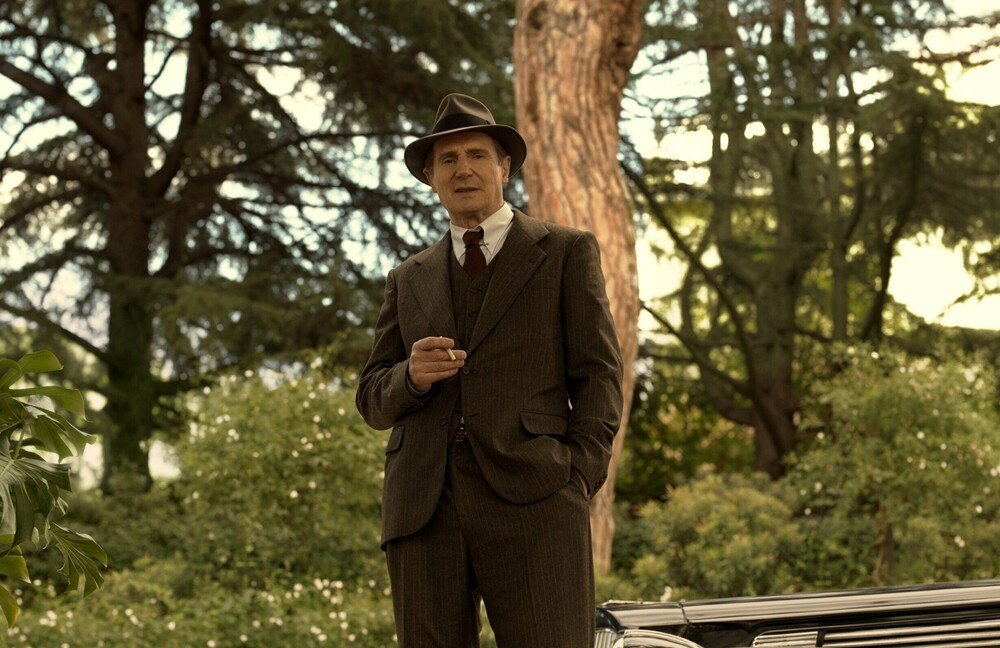Marlowe

Liam Neeson stars in MARLOWE. (Photo: Briarcliff Entertainment)
From the pulpy atmosphere to the brooding characters, Marlowe is a throwback to a bygone era of classic film noir — in every characteristic except quality.
Any aesthetic appeal in this latest big-screen adventure for Raymond Chandler’s hard-boiled detective is compromised by a flat story that lacks suspense and intrigue beneath its stylish surface.
Liam Neeson dutifully checks the boxes as the smooth-talking, chain-smoking and fedora-wearing gumshoe who enjoys vintage cars and quick-witted retorts. But this convoluted potboiler from director Neil Jordan (The Crying Game) is a reverent genre entry more familiar than fresh.
It’s set in fictional 1930s Bay City, against the backdrop of a burgeoning Hollywood system overrun by greedy financiers. That’s where Philip Marlowe is a beleaguered private investigator seeking a jump-start.
He has an affinity for alluring women, such as heiress Clare Cavendish (Diane Kruger), daughter of an enigmatic movie star (Jessica Lange), who has all the makings of a duplicitous femme fatale when she visits his office after the disappearance of her ex-lover. “You’re very perceptive, Mr. Marlowe,” she explains. “I imagine it gives you trouble.”
As he compiles evidence regarding his whereabouts, Marlowe must navigate a maze of conflicting motives, red herrings, and bureaucratic obstacles that obscure the truth. He’s not sure who to trust or what to believe, who’s attempting to help his case and who’s determined to hinder it.
Along the way, the film provides some amusing exchanges — sometimes escalating to violent confrontations — with the rogues and eccentrics trying to engage in misdirection, manipulation, and deceit.
Neeson capably fills an iconic role previously played over the past eight decades by Humphrey Bogart, James Garner, Elliott Gould, Robert Mitchum, and others. The sharp supporting cast includes Colm Meaney, Alan Cumming, Danny Huston, and Adewale Akinnuoye-Agbaje.
The screenplay by Oscar winner William Monahan (The Departed) is based not on a Chandler book, but instead on a 2014 Marlowe novel by Irish writer John Banville. From a procedural standpoint, it struggles to heighten the stakes in its straightforward central mystery or generate sufficient incentive for emotional investment in the outcome.
The amber-accented visuals help to capture a sense of time and place, but Marlowe seems content to rehash cliches. As its protagonist is prone to observe: “Fair enough.”
Rated R, 109 minutes.